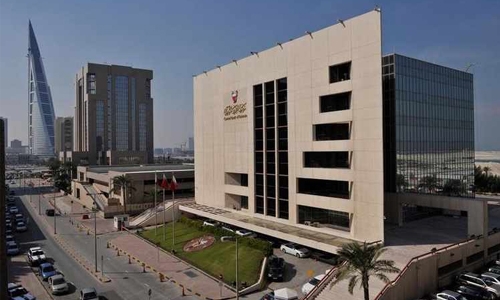Central banks raise rates
The Central Banks of Bahrain, UAE and Saudi Arabia announced raising their benchmark interest rates after the US central bank lifted the target range for federal funds rates. Borrowing rates for the US were increased by another quarter points or 0.25 points with 2.5 per cent at the high end. However, the Federal Reserve gave the clearest sign to date that it will go slow on additional increases as it watches the economy.
Consequently, Saudi Arabia, the UAE, Qatar, Oman, and Bahrain, whose currencies are pegged to the US Dollar also announced their decision to alter their policy rates. Kuwait is the only Gulf country whose currency is currently not pegged to the US dollar after it dropped the peg when inflation spiked in 2007 and adopted a dinar exchange rate that is based on a basket of currencies.
CBB ups rates
Effective immediately, the Central Bank of Bahrain (CBB) raised its key policy interest rate on the one-week deposit facility from 2.50 per cent to 2.75pc. Overnight deposit rate was raised from 2.25pc to 2.50pc, lending rate from 4.25pc to 4.50pc, while the one-month deposit rate will remain the same at 3.25pc, the CBB said in a statement.
Saudi repo rate
Saudi Arabia Monetary Authority (SAMA) said it will raise its repo rate from 275 basis points to 300 basis points and the reverse repo rate from 225 basis points to 250 basis points with immediate effect. Policy rate adjustments are consistent with preserving monetary stability, the Saudi Press Agency (SPA) reported.
UAE central bank
The Central Bank of the UAE (CBUAE) said, effective Thursday, December 20, it will raise interest rates applied to the issuance of its Certificates of Deposits in line with the increase in interest rates on US Dollar. The Repo Rate applicable to borrowing short-term liquidity from CBUAE against Certificates of Deposits has been increased by 25 basis points, UAE News Agency (WAM) reported.
Certificates of Deposit, which CBUAE issues to banks operating in the country, are the monetary policy instrument through which changes in interest rates are transmitted to the UAE banking system. Meanwhile, Kuwait’s central bank said that it had decided to maintain its discount rate unchanged at its current level of 3 per cent.
Market turbulence
The US central bank said in a statement that it “will continue to monitor global economic and financial developments and assess their implications for the economic outlook.” The policy-setting Federal Open Market Committee also released its quarterly forecast showing officials see economic growth moderating so that they now expect to increase the benchmark interest rate only twice next year rather than three times, as forecast in September.
However, in a news conference after the release of the policy statement, Fed Chairman Jerome Powell said the central bank would continue trimming its balance sheet by $50 billion each month, and left open the possibility that continued strong data could force it to raise rates to the point where they start to brake the economy’s momentum.
Powell did bow to what he called recent “softening” in global growth, tighter financial conditions, and expectations the U.S. economy will slow next year, and said that with inflation expected to remain a touch below the Fed’s 2 per cent target next year, policymakers can be “patient.” Five Fed officials slashed their forecast, and now expect two or fewer hikes rather than four or more in the coming year.
Related Posts

